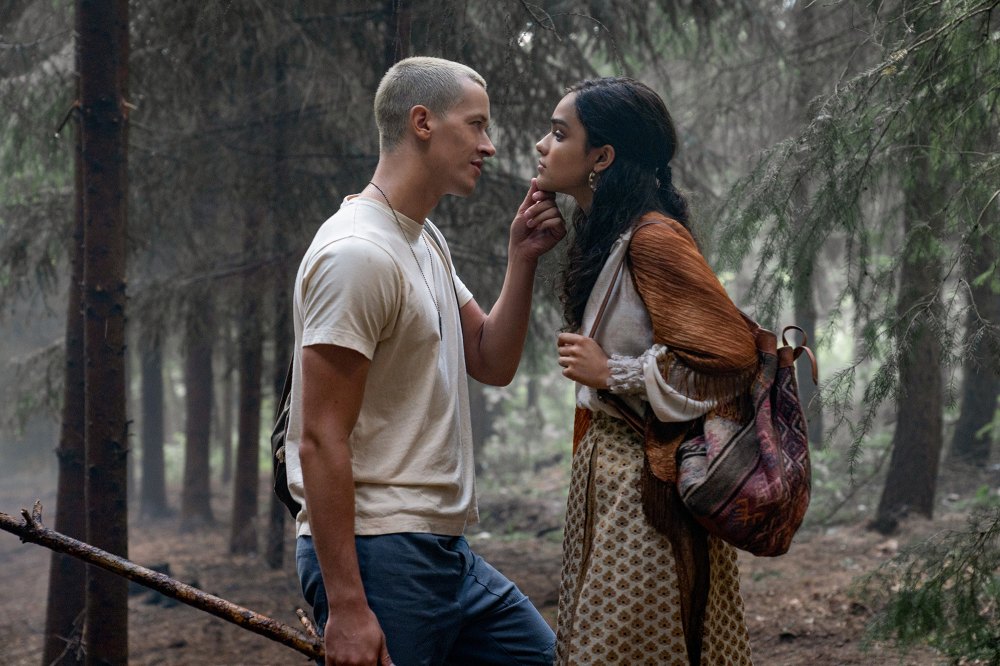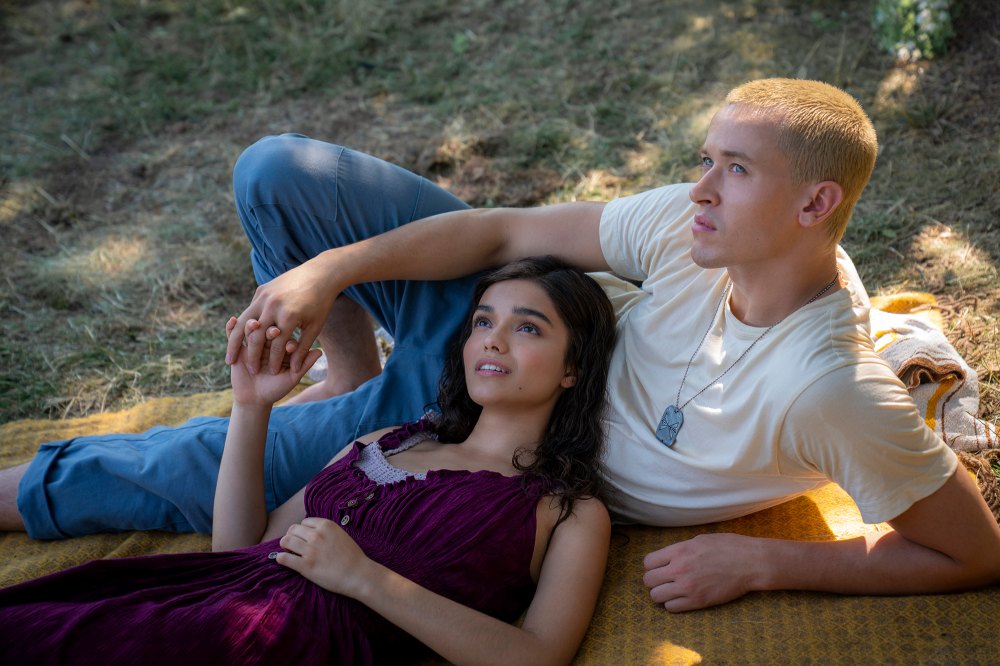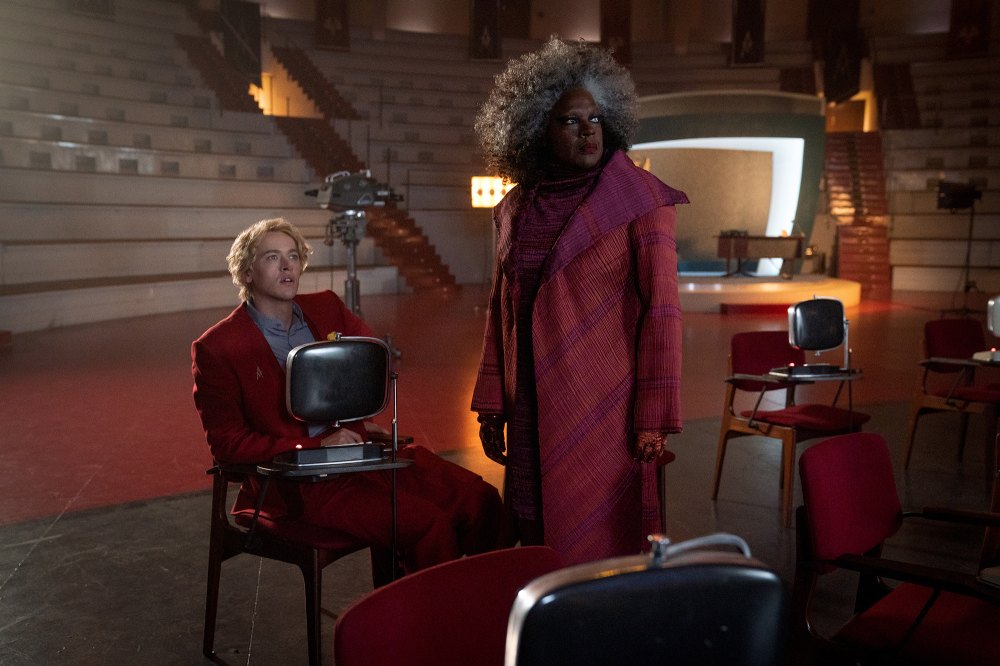
The Hunger Games: The Ballad of Songbirds and Snakes earns 3 stars (out of 4) from Us Weekly movie critic Mara Reinstein.
In theory, The Hunger Games: The Ballad of Songbirds and Snakes does not have the odds ever in its favor.
Not only has the franchise been absent from the moviegoing consciousness since 2015, it’s a prequel. Shrug. The let’s-see-how-we-came-to-be storyline didn’t effectively fly for epics like Star Wars or Lord of the Rings. Why would revisiting the post-apocalyptic world of Panem result in a change for the better? We already know District 12 is doomed for decades. It’s not like Jennifer Lawrence is going pop up playing the long-lost ancestor of Katniss Everdeen.
The twist is that The Hunger Games: The Ballad of Songbirds and Snakes doesn’t need Lawrence or a Hemsworth, as the young adult dystopian drama succeeds on its own merits. Based on Suzanne Collins’ 2020 novel, this is a well-crafted and entertaining narrative enhanced by character development rarely pulled off in big-budget extravaganzas. Perhaps most impressive at all, it even boosts the pop culture legacy of the original saga.
We’re dropped off at the 10th annual Hunger Games, in which two youngsters from each of Panem’s districts are still chosen at random to fight to the death on TV. The female representative from lowly District 12 is Lucy Gray Baird (Rachel Zegler of West Side Story), a traveling musician who makes a spectacle of herself at the reaping ceremony by tossing a snake down the back of a snobby rival and then belting out a defiant anthem. Tasked to be her mentor: A teen named Coriolanus Snow (British actor Tom Blyth). He’ll ultimately rule the land as a tyrannical president. For now, he’s a strapping teen student determined to help Lucy Gray so he can win a coveted cash prize and go to a university. He carries a white rose. For friendly purposes!

The story is broken down into specific sections — and for the most part, its structure goes according to plan. At first, Lucy is wary of the upper-crust “Corio.” But the two soon grow closer. And though Corio is instructed by the creator of the Games (Peter Dinklage) to not cheat as a form of strategy, he’s willing to go to extremes for his protégée. Blyth’s presence is so intriguing that we’re unsure if he rebels because of his ruthless desire to snag the money or because he has genuine affection for the beautiful and scrappy Lucy Gray. For that matter, Dinklage’s presence is so intimidating that we believe him when he says there will be consequences if anyone is caught breaking the rules.
Spoiler . . . there are.
As for those Hunger Games, the inevitable set piece is a bit of a suspenseful letdown. After watching Katniss and her competitors go at it for years, there’s no longer a horrifying shock value in the concept of kids ruthlessly killing each other. (To be fair: Amid our reality TV-dominated universe, Collins has tried to underline this point in her books.) Once again, the bullies from the richer districts are the main antagonists; little silver parachutes filled with goodies emerge from the sky as salvation; and our heroine finds herself in peril and uses her quick-wits to survive. Been there, done all that.
The unfolding drama is at least visually interesting. During this particular time in Panem, the Tributes must survive in a primitive low-fi arena that keeps the battles front and center. Meanwhile, everyone watches the action on retro 70s-era TVs. The Capitol itself is more sterile authoritarian than post-apocalyptic glam. All the above is a good thing — at 158 minutes, moviegoers might as well be treated with top-rate and expensive-looking production values. (Could more songs have been excised in the editing process? Um, yeah. Zegler has the chops, but we’re not here for The Hunger Games: The Concert.)

That extended run time also means The Hunger Games: The Ballad of Songbirds and Snakes doesn’t end with a Tribute emerging victorious. And this is where the film truly stands apart from its peers.
Consider that prequels tend to consistently disappoint because the stakes are nil. Obi-Wan Kenobi will grow to be an old man, just like Gandalf the Wizard’s physical body won’t die. Obviously, young Corio will not visit the oft-used guillotine for any infractions in the third act so he can turn into white-haired Donald Sutherland. Instead, the character’s moral compass deconstructs via fascinating increments. It helps that he has the ultimate snake whispering in his ear in the form of Viola Davis’ sinister Head Gamemaker. The actress won’t win an award for this performance, but she commits to scenery-chewing in the most delicious of ways.
At one point in the film, Lucy Gray name-drops a three-petal flower called a Katniss. Wink-wink to the future, of course. The reference serves a more notable purpose: The Hunger Games: The Ballad of Songbirds and Snakes works because it makes us care deeply about the present, if not the past. Who needs archery when you’ve got tension and harmony?
The Hunger Games: The Ballad of Songbirds and Snakes opens in theaters on Friday, November 17.
Source link


